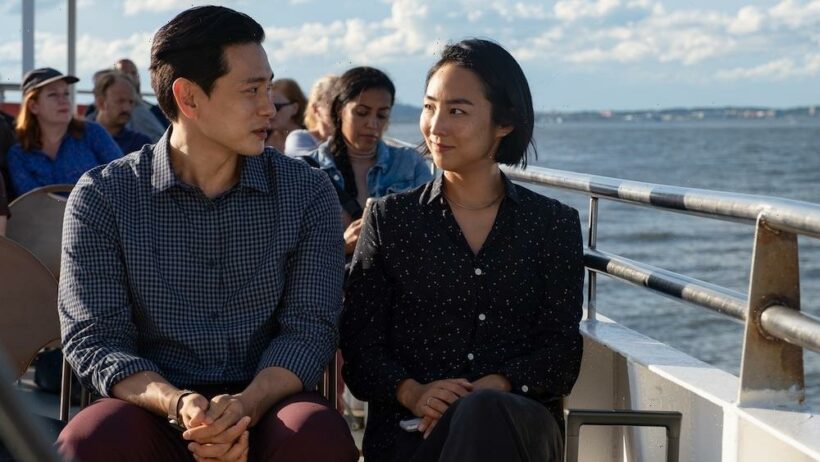It is not unprecedented to have a Sundance-premiering film play in the Berlinale competition. Yet director Celine Song’s journey with “Past Lives,” which received raves in Park City and makes its international bow in Berlin, feels like a fresh phenomenon. She’s a first-time filmmaker. Her movie has no big names. And it is unapologetically personal.
Breakthrough status suits Song, who told Variety, “Everything I do, I have to believe it is the first time I’m doing that kind of thing.” Her recent resumé bears that out: Since her Off Broadway play “Endlings” closed early due to the pandemic, she has written for Amazon’s “The Wheel of Time” and mounted a production of Chekhov’s “The Seagull” entirely within the Sims 4 universe on Twitch.
So “Past Lives” feels gorgeously new, but it’s also involved in evergreen ideas about love and fate. Tracing the decades-spanning, continents-bridging connection between childhood sweethearts Nora (Greta Lee) and Hae Sung (Teo Yoo), it is inextricably informed by Song’s own life. She, like Nora, is a playwright who emigrated from Korea to Canada as a kid, and now lives in New York with her American writer husband. Yet the notion that it could be too specific to be relatable didn’t really trouble her. “Sure, there is a question of whether it is going to reach your audience. But it’s always an act of faith; I believe that as long as you’re absolutely honest with your experience, and try to describe it as accurately and clearly as possible, it is going to connect with people.”
However, there’s an elegance to the film’s construction that is as much about what is omitted as what is included, an economy of vision perhaps helped by Song’s theatrical background. “There’s a difference between truth and facts, right? That is something that in theater you think about every time, because you’re creating in an empty, black-box room, yet you’re trying to describe the whole of what it is like to be a person.” Even so, “Past Lives” wasn’t conceived for theater. “I never thought of it as a play,” says Song, “Because of the locations, the contradiction of Seoul and New York being so far apart yet also feeling close.”
Those contradictions are embodied by the two male characters, Hae Sung and Arthur (John Magaro), Nora’s eventual husband, but Song was careful to make them live beyond their function as signifiers. “Hae Sung is an ordinary guy, who, to me, is heroic because he asks nothing of Nora except to love her.” And Arthur, though she acknowledges it would have been easy to “villainize that particular character … is somebody who can be believable as also being capable of just a stunning amount of love.”
But the link between the two is Nora herself, and it’s the great virtue of “Past Lives” that Song portrays Nora’s cultural mix as a source of strength rather than angst. That, too, comes directly from within, exemplified by her memory of being in a bar with her husband and a long-separated Korean friend. “Sitting there, being the bridge between these two men, but also these two cultures and these two languages, I felt unbelievably powerful, you know?”
That moment became the film’s unforgettable opening sequence. “It was the first scene I wrote,” says Song, “And it unlocked the rest of the film. The people serving us and the other patrons were looking at us, wondering who we were to each other, because we were such a strange threesome. And I was like, oh man, if you guys only fucking knew!” And so “Past Lives” became a way to be able to tell everybody. “That was the instigating feeling: oh, you have no clue, so let me tell you…”
Read More About:
Source: Read Full Article
